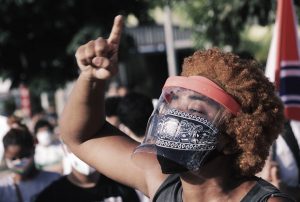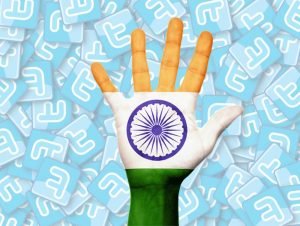London – Within months, with activists hosting the United Nations Climate Change Conference (COP27) voicing concerns about the censorship risk of the protests, Egypt announced it would again allow tourists to take photos in public spaces without prior permission for personal use.
However, the release is not unlimited: anyone who makes or shares recordings deemed “offensive against the country” can be fined or equipment confiscated. “Dirty neighborhoods” can include scenes of crime as well as images of children.
The rules do not apply to filmmakers who want to use the country as a backdrop, or foreign reporters documenting news events. These professionals will still need to apply for a license from the government and pay fees.
Press Censorship in Egypt
The obstacles to the photographs and videos taken by tourists who visit the country to explore its natural beauties and historical sites and discover its social reality are not an isolated reality.
He is famous for censoring the Egyptian press and opponents of the government of Recep Tayyip Erdogan.
According to Reporters Without Borders (RSF), the country with at least 20 journalists behind bars ranks 168th out of 180 countries in the NGO’s press freedom index. And 60,000 dissidents would be behind bars, many of whom were accused of “spreading fake news.”
The restriction on the production of images transmitted on tourist social networks or by journalists causes complaints and protests, which are not always positive in the eyes of the government.
Egyptians and visitors complain that they have been fined and security forces confiscated their equipment despite permits.
The changes come a few months after American YouTuber Sonny Side of the “Best Food Review Show Ever” (BEFRS) channel said “Egypt is one of the worst places for filmmakers” after the equipment was seized upon arriving in the country.
Egypt’s Ministry of Tourism and Antiquities announced on Wednesday that the country’s cabinet approved “new regulations governing photography for personal use” by Egyptian residents and tourists.
In an interview with local media, Minister Khaled El-Enani said the loosening of the rules is aimed at encouraging photos of tourists, albeit with restrictions depending on the content.
The as-yet-unpublished regulation will eliminate the requirement to authorize and pay for personal photos taken on the streets or in other public places. “No one will be able to ask why you’re shooting in a public place,” al-Enani told the media.
Also Read | According to the report, freedom of expression is falling by 80% in the world and in Brazil in ten years
However, meticulousness in capturing images for commercial and artistic purposes continues.
Journalists and filmmakers from abroad still have to obtain permission from the Egyptian government for the use of photographic or film cameras in public spaces.
According to local media, it usually takes 10 days to be granted permission after applying to the State Information Service. The minister also stated that the body will be responsible for issuing licenses for news channels, including reporters and foreign correspondents.
As for cinematography licenses, the government has announced the creation of a digital platform for professionals to request and obtain the necessary permits.
Visitors may be censored in Egypt
While not all types of photos require permission, an inappropriate content policy can be a cause for concern and continue to penalize visitors.
Taking photos or videos of scenes deemed “offensive” to Egypt’s image will be considered illegal.
What will be classified as such has not yet been disclosed in detail, but the government has signaled that photographs of children, for example, will not be allowed. And people can only be photographed if they have given written permission.
This makes it almost impossible for a tourist to photograph their passage through public places such as streets, squares, restaurants, popular markets or historical places, because these places are where almost no one else is.
Also Read | In dispute over freedom of expression, Twitter sues India over blocking orders
The Tourism Minister said the issue will be discussed with the council before the law comes into force. The proposal seems to want to avoid recording situations that could generate criticism abroad, such as people on the street or inappropriately littered garbage.
For YouTuber Sonny Side, who specializes in gastronomy, it doesn’t seem like that. In April he went to Egypt to explore the country’s popular dishes.
The equipment was confiscated at the airport even though he declared that he was an audiovisual content producer and was in Egypt for that purpose.
Side reported that he was mistreated by the authorities. Without professional equipment, he used his own iPhone to record local restaurants in Cairo. His video has been viewed more than 6 million times.
The censorship and pressure on the press remain the same, even if the country allows the production of photographs by tourists.
In a report released two weeks ago, the RSF showed how major pro-government TV anchors and media controlled by the Erdogan regime are being used to publicize and amplify smear campaigns against several journalists who still criticize public power.
read it too
source: Noticias
[author_name]

